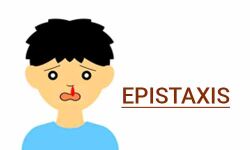- Home
- Medical news & Guidelines
- Anesthesiology
- Cardiology and CTVS
- Critical Care
- Dentistry
- Dermatology
- Diabetes and Endocrinology
- ENT
- Gastroenterology
- Medicine
- Nephrology
- Neurology
- Obstretics-Gynaecology
- Oncology
- Ophthalmology
- Orthopaedics
- Pediatrics-Neonatology
- Psychiatry
- Pulmonology
- Radiology
- Surgery
- Urology
- Laboratory Medicine
- Diet
- Nursing
- Paramedical
- Physiotherapy
- Health news
- Fact Check
- Bone Health Fact Check
- Brain Health Fact Check
- Cancer Related Fact Check
- Child Care Fact Check
- Dental and oral health fact check
- Diabetes and metabolic health fact check
- Diet and Nutrition Fact Check
- Eye and ENT Care Fact Check
- Fitness fact check
- Gut health fact check
- Heart health fact check
- Kidney health fact check
- Medical education fact check
- Men's health fact check
- Respiratory fact check
- Skin and hair care fact check
- Vaccine and Immunization fact check
- Women's health fact check
- AYUSH
- State News
- Andaman and Nicobar Islands
- Andhra Pradesh
- Arunachal Pradesh
- Assam
- Bihar
- Chandigarh
- Chattisgarh
- Dadra and Nagar Haveli
- Daman and Diu
- Delhi
- Goa
- Gujarat
- Haryana
- Himachal Pradesh
- Jammu & Kashmir
- Jharkhand
- Karnataka
- Kerala
- Ladakh
- Lakshadweep
- Madhya Pradesh
- Maharashtra
- Manipur
- Meghalaya
- Mizoram
- Nagaland
- Odisha
- Puducherry
- Punjab
- Rajasthan
- Sikkim
- Tamil Nadu
- Telangana
- Tripura
- Uttar Pradesh
- Uttrakhand
- West Bengal
- Medical Education
- Industry
Pomalidomide Significantly Reduces Epistaxis Severity in HHT Patients, Study Finds

Researchers have found that the severity of epistaxis significantly diminishes in affected patients with hereditary hemorrhagic telangiectasia (HHT) with pomalidomide treatment. HHT is a genetic disorder characterized by the growth of widespread telangiectasias and arteriovenous malformations which causes recurrent nosebleeds or epistaxis, iron-deficiency anemia, and diminished quality of life. Epistaxis can be severe and debilitating, highly affecting patients' daily activities and overall well-being. A recent study was conducted by Al-Samkari and colleagues and was published in The New England Journal of Medicine.
The primary objective of this study was to investigate whether pomalidomide lessens the severity of epistaxis in HHT patients, as defined by the Epistaxis Severity Score. An important secondary outcome was how pomalidomide impacts patient quality of life: to be measured with a specific HHT quality-of-life score.
144 Patients were randomized to receive either pomalidomide (4 mg daily) or placebo for 24 weeks in a 2:1 ratio. The first objective was the change from baseline to week 24 in the Epistaxis Severity Score. This score is standardized from 0 to 10, with higher values indicating a more significant bleeding, and any decrease with a value of at least 0.71 points is considered clinically relevant. The secondary endpoint was the HHT-specific quality-of-life score, ranging from 0 to 16, with higher values meaning more restrictions.
Results
• At baseline for all patients the mean Epistaxis Severity Score was 5.0 ± 1.5, denoting moderate to severe nosebleeds.
• At week 24, the mean change in Epistaxis Severity Score was -0.94 points for the pomalidomide group compared with the placebo group (95% CI, −1.57 to −0.31; P=0.004), crossing the clinically significant threshold of 0.71 points.
• Compared with the placebo group, the mean difference in HHT-specific quality of life between baseline and end was −1.4 points (95% CI, −2.6 to −0.3), suggesting improvement in daily functioning and reduction of disease-related limitations.
• Neutropenia, constipation, and rash were more common in the pomalidomide group, but no new safety signals emerged.
Pomalidomide markedly decreased the severity of epistaxis, a HHT, on the criterion of clinical significance for more than half of those affected. The treatment also seemed to improve quality of life, and safety. Therefore, pomalidomide could be a promising therapeutic intervention in HHT, but more studies are needed to adequately describe its long-term benefits and safety across the larger populations of affected individuals.
Reference:
Al-Samkari, H., Kasthuri, R. S., Iyer, V. N., Pishko, A. M., Decker, J. E., Weiss, C. R., Whitehead, K. J., Conrad, M. B., Zumberg, M. S., Zhou, J. Y., Parambil, J., Marsh, D., Clancy, M., Bradley, L., Wisniewski, L., Carper, B. A., Thomas, S. M., & McCrae, K. R. (2024). Pomalidomide for epistaxis in hereditary hemorrhagic telangiectasia. The New England Journal of Medicine, 391(11), 1015–1027. https://doi.org/10.1056/nejmoa2312749
Dr Riya Dave has completed dentistry from Gujarat University in 2022. She is a dentist and accomplished medical and scientific writer known for her commitment to bridging the gap between clinical expertise and accessible healthcare information. She has been actively involved in writing blogs related to health and wellness.
Dr Kamal Kant Kohli-MBBS, DTCD- a chest specialist with more than 30 years of practice and a flair for writing clinical articles, Dr Kamal Kant Kohli joined Medical Dialogues as a Chief Editor of Medical News. Besides writing articles, as an editor, he proofreads and verifies all the medical content published on Medical Dialogues including those coming from journals, studies,medical conferences,guidelines etc. Email: drkohli@medicaldialogues.in. Contact no. 011-43720751


